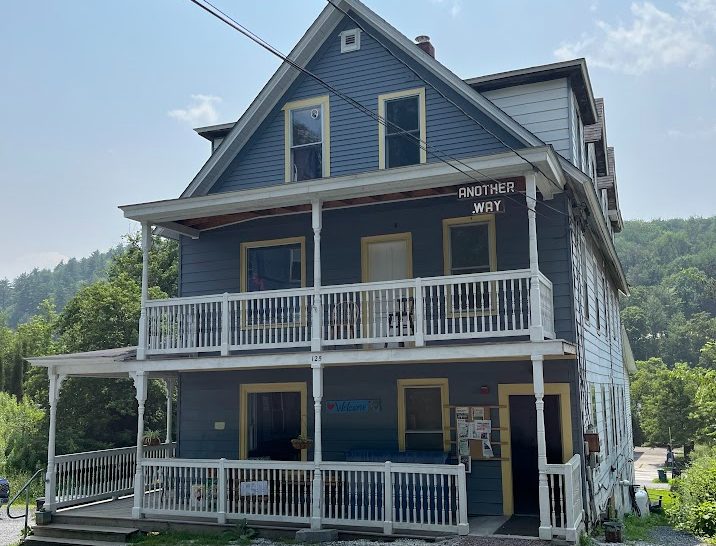On Barre Street in Montpelier, Another Way Community Center sustained little damage from the flooding that devastated much of the rest of the city in July, keeping its doors open during and after the storm.
“We did have some minor flooding in the basement. There was some flooding just two doors down, on the backside, on Stone Cutters Way,” Executive Director Ken Russell reported. “But we never felt we were in imminent danger.”
Another Way has provided what it calls “voluntary peer-run alternatives for people who avoid conventional mental health services” for nearly four decades. Seven days a week, it offers a safe haven for psychiatric survivors, especially those who struggle with homelessness.
“We’ve ended up working with more folks who are living outside than maybe some of the other peer organizations,” Russell said.
On July 10, while some community members hunkered down inside the building on Barre Street to stay dry, Another Way staffers ventured out to check on others.
“We were sending outreach folks out into the field to help people who were camped out get away from the river and get onto higher ground,” Russell recollected. “There was some real intensity there. Luckily, it’s a peer-to-peer relationship, and folks knew how to reach people.”
In the subsequent days, traffic picked up at the community center.
“It’s been a lot busier,” said Cindy Gauthier, who works in Another Way’s kitchen and garden. “Normally, it’s a lot of familiar faces.”
“Now we’re getting new ones that lost everything,” Jason Brown, a shift worker, added.
Another Way has continued to offer the same free services, including daily breakfasts and weekly dinners, that it provided before the flood. But by Gauthier’s account, the need for these services has become “more urgent.”
That includes peer support.
“Some folks, they need to talk. A lot of them just want to vent,” Brown said.
Others appear less affected by the storm. Office Manager Edward Cremo observed that many of Another Way’s regulars had long become accustomed to living without the sense of comfort and safety that other Vermonters, who’d had secure housing, lost only as a result of the flood.
“It’s as though people struggling with ongoing homelessness are somewhat inured to this,” Cremo said.
Brown agreed. “You’ve got some that’s stressed because they lost all their camping gear, and you’ve got some that’s like, ‘It’s part of life. It happens.’”
Another Way has helped replace washed-away tents, tarps, and sleeping bags. Some community members saw the cars in which they’d been living engulfed by the floodwaters.
“A lot of folks who lost their home, or their lives were turned upside down, were able to come here and regroup,” Russell recalled. “There was a lot of mutual support, some basic needs, emotional support, helping to find resources, and sometimes replaying really traumatic experiences.”
Russell pointed out that the destruction of homes during the flood would exacerbate a severe housing shortage that had already impacted psychiatric survivors in Montpelier.
“I can’t keep track of the number of people I’ve encountered who have lost housing, either temporarily or permanently,” he said. “What I hope is that the tremendous amount of community support and people stepping up to take care of each other results in an even greater commitment to taking care of the most vulnerable people.”
“But we need it to be sustained,” Russell continued. “There’s already some fatigue, but it’s going to be a marathon. It’s going to be a long recovery. So we’re in it for the long haul.”

